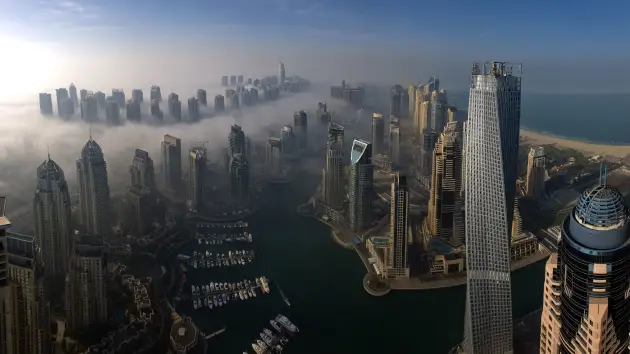- As stated by Sheikh Mohammed bin Rashid al Maktoum, the emir of Dubai, Dubai intends to quadruple its economy over the next ten years and be among the “top 3 economic cities in the world.”
- Dubai has implemented an abundance of reforms in recent years to increase its appeal as a place to live and invest for foreigners and multinational corporations. Dubai on Wednesday unveiled a massive $8.7 trillion economic plan for the next ten years with the goal of boosting trade, foreign investment, and the city’s status as a major international hub.
- With a rise in FDI to over AED 650 billion ($177 billion) during the next ten years, “Dubai will continue to rank as one of the top four global financial centers,” Invoking Sheikh Mohammed bin Rashid al Maktoum,
A couple of the 100 “future transformational projects” mentioned in the essay were also mentioned in the ten-year economic blueprint. Included in these are raising government spending from 512 billion dirhams in the previous decade to 700 billion in the next, almost doubling annual investment from abroad to 60 billion dirhams, and growing international trade from 14.2 trillion dirhams to 25.6 trillion dirhams.
The plan also pledges 100 billion dirhams in yearly contribution to the economy resulting from digital transformation projects, increasing private sector investments from 790 billion dirhams in the previous decade to 1 trillion in the next.
The announcement was made only a few days after Dubai announced that its harsh 30% tax on alcohol will no longer apply. It appears that this decision was aimed to increase tourism and business. The oil-rich United Arab Emirates’ glittering commercial and tourism hub, the emirate, has implemented a flurry of reforms in recent years to lure more foreigners and global businesses to live and invest there.
“Despite the goals being lofty, there is not much reason to doubt them considering Dubai’s economic background and past record of improvements. Tarek Fadlallah, CEO of Nomura Asset Management for the Middle East
The competitiveness issue was brought up by Karim Jetha, chief investment officer at the Dubai-based asset management company Longdean Capital. Saudi Arabia, which is close by, is spending trillions of dollars of its own money to get rid of its closed and conservative image and draw in tourists and foreign investment.
The figures seem high, but Dubai never lacked for ambition, according to Jetha. Dubai is raising the bar and aiming to become a global hub as neighbors like Saudi Arabia open up and try to snag more regional business.
Although Dubai has long been a Middle Eastern regional hub, it recently underwent changes to accelerate its globalization. It features one of the lowest crime rates in the world, beaches, and a population that is 90% made up of various expatriates. It has long offered lifestyles that are similar to those in the West.
The UAE lately moved from the Islamic holiday of Friday and Saturday to the Western weekend of Saturday and Sunday in order to be more in line with the majority of the rest of the globe. Additionally, the coronavirus outbreak prompted the UAE to start offering a remote worker visa program as more people embraced a remote work lifestyle.
Dubai was able to resume “normal life” during the pandemic much sooner than most other countries thanks to an early deployment of vaccines for its full population in early 2021, bringing in surges of new residents and visitors. Dubai was recently named one of the world’s top ten greatest locations for expats to live and work, and its real estate market is now flourishing.
The Gulf states generally are set to prosper, according to Nomura’s Fadlallah, buoyed by still-high oil prices and motivated by a desire to broaden their economies, as much of the world looks ahead to a gloomy and bearish 2023 with anticipates of widespread recessions, rising costs of energy, and slow economic growth.

